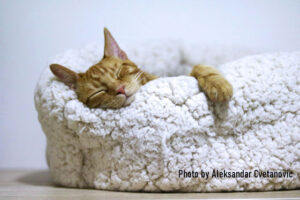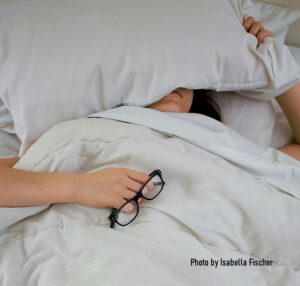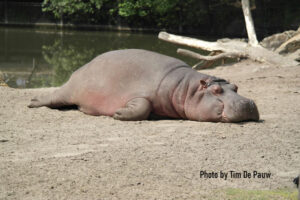
“Happiness consists of getting enough sleep. Just that, nothing more.” –Robert A. Heinlein, Starship Troopers
* * *
Koala bears are the experts when it comes to sleep. An adult koala averages about twenty hours of sleep each day! To those of us who are trying to pack as much writing, marketing, networking, and everything else into a 24-hour time period, that seems a little excessive..
So why do those cute, furry critters need so much sleep? Koalas exist primarily on a diet of toxic eucalyptus leaves, and it takes a lot of energy for their digestive systems to break down the leaves which turn out to be low in nutrients to begin with. Bottom line: koala bears get the amount of sleep they need to support their lifestyle.
So how does that apply to humans?
* * *
“A good laugh and a long sleep are the best cures in the doctor’s book.” –Irish Proverb

We all know that a good night’s sleep is essential for good health. Good sleeping habits help us maintain a healthy weight, lower stress levels, repair body tissue, and give us an overall sense of well-being. According to sleepfoundation.org, sleep is also conducive to mental acuity.
Sleep is believed to help with memory and cognitive thinking. Brain plasticity theory, a major theory on why humans sleep, posits that sleep is necessary so the brain can grow, reorganize, restructure, and make new neural connections. These connections in the brain help individuals learn new information and form memories during sleep. In other words, a good night’s sleep can lead to better problem-solving and decision-making skills.
Better sleep means better thinking, but how about creativity?
* * *
“Man is a genius when he is dreaming.” –Akira Kurosawa, Japanese Film Director

It turns out creativity and sleep are related.
Scientists generally divide sleep into two categories: Non-rapid eye movement (Non-REM) sleep and Rapid Eye Movement (REM) sleep.
Ideatovalue.com posted an article that compared the two categories and examined their effects on creativity.
-
Non-REM sleep is where information we engaged with during the day is processed and formed into memories
-
REM sleep is where those new memories are compared and integrated into all of the previous knowledge and memories we have. This is also usually when we dream. This may form new novel associations between distant pieces of information, a vital component for new ideas
The article concludes:
This would imply that REM sleep is important for not only our ability to associate new ideas and solve existing problems, but also form new original and divergently creative ideas.
Okay. We need a good night’s sleep to perform at our best, but how do we get it?
* * *
“A well-spent day brings happy sleep.” –Leonardo da Vinci

How much sleep do we need to maximize creativity? The National institutes of Health recommends adults get seven to nine hours of sleep a night. And how can you ensure a good night’s sleep? The Centers for Disease Control and Prevention recommend
-
Be consistent. Go to bed at the same time each night and get up at the same time each morning, including on the weekends
-
Make sure your bedroom is quiet, dark, relaxing, and at a comfortable temperature
-
Remove electronic devices, such as TVs, computers, and smart phones, from the bedroom
-
Avoid large meals, caffeine, and alcohol before bedtime
-
Get some exercise. Being physically active during the day can help you fall asleep more easily at night.
* * *
So TKZers: Have you noticed a connection between sleep and creativity? How much sleep do you get each night? Do you remember your dreams and use them in your stories? Have you recovered from losing an hour of sleep to Daylight Savings Time?
* * *
 Private pilot Cassie Deakin lands in the middle of a nightmare when she finds her beloved Uncle Charlie has been assaulted by thieves. Then things get worse.
Private pilot Cassie Deakin lands in the middle of a nightmare when she finds her beloved Uncle Charlie has been assaulted by thieves. Then things get worse.
Buy on Amazon, Barnes & Noble, Kobo, Google Play, or Apple Books.

I’m a chronic insomniac. A good night is six or seven hours of sleep, but it’s not all sleeping, so it’s hard to track how much actual sleep I get. And for everyone complaining about the 1 hour time shift — I flew to New Zealand, and it took two tries due to equipment malfunction, which meant two nights of hardly any sleep at all. Positive note: after two days of almost no sleep, for the first time ever, I slept on the plane. But Auckland is nineteen hours and a day ahead of Colorado. Right now, It’s 6:15 pm on Monday, March 11th where I am, and 11:15 pm on Sunday in Colorado. I’m hardly adjusted to the drastic switch, but I’m on vacation, so if my creativity has dropped, I really don’t care. I’m here to enjoy the sights and activities, and I feel no guilt about abandoning the wip for the duration.
Good morning, Terry, and happy Monday / Tuesday.
International travel is not conducive to a good night’s sleep, but that makes coming home just that much better.
Enjoy your trip. (And stay away from those eucalyptus leaves! 🙂 )
I just keep putting myself back to bed, over and over. None of my sleep segments are much over 3 hours (which is already rare), and some are as short as ten minutes. Most are 45 min. to 1.5 hours.
ME/CFS is the cause – and a couple of other things. Haven’t slept a full night in so many years I can’t remember.
I don’t fight it. I nap when I need to during the day, 3-5 times, and keep putting myself back to bed without angst. I eat if I’m hungry, and that will often enable a slightly longer segment.
It can be done – if you have to.
But I’m sleep-deprived most of the time, and have to write in short segments: if the brain is on, I try to write.
Don’t tolerate medication, sleep hygiene practices are all optimized, and I don’t have sleep apnea. It just is. I used to be normal.
Good morning, Alicia.
I’m sorry to hear about your ME/CFS. I don’t know much about the disease, but I know it takes an awful toll on its sufferers. I hope there’ll be a medical breakthrough to alleviate the pain.
Kudos to you for continuing to work through it all.
I used to be able to sleep anywhere, on the floor, in a pool gutter (literally), in a car (hopefully not while driving)… Now I have to work at falling asleep. Getting up at the same time even on weekends helps. So does daily exercise and not eating junk food, especially near bedtime because it gives me heartburn!
Sleep definitely helps with creativity. It’s hard to make a new analogy, create new symbolism, draw new characters, and forge new (story) paths. You have to be well rested to write creatively.
Good morning, Priscilla! A pool gutter? Really?
Getting exercise and tossing the junk food are great suggestions. And I agree it’s hard to be creative when we haven’t had enough sleep.
Have a great week. (And stay away from those pool gutters. 🙂 )
Kay, thanks for the interesting research. I also read the “novel associations” link which said:
“…a single memory can trigger associations which nobody would have expected.
But crucially, there needs to be the initial memory (knowledge) from which the first association begins. This is why the blank page can be so hard, because there is no initial trigger to work from.”
What a good explanation. That’s why writing prompts work.
I don’t sleep as well as I used to. Up, down, flip, flop, trying to get comfortable. In the morning, I’m fresh and energetic but by about 3-4 p.m., I’m dragging.
Usually I don’t remember dreams. If I do, they aren’t brilliant plot ideas. However, the subconscious must be working b/c I often wake with the solution to a problem.
Daylight savings time? Yesterday I got totally confused between time zones and showed up two hours early for a zoom meeting. But it’s nice that it’s light later.
Good morning, Debbie!
Thanks for quoting that “novel associations” link. Writing prompts are like warmups for the brain. Once you get those neurons firing, who knows what brilliant ideas might surface.
I’m not a fan of DST, but I did get a good night’s sleep last night, so I can’t complain too much.
Have a great week.
5-7 hours? I am lucky to get 4. Old man bladder makes sure a good night’s sleep doesn’t happen.
I have been seeing a sleep specialist for over 20 years now. My night work destroyed proper sleep long ago. I asked him once about what to do about needing to be awake enough to safely drive a car from midnight to 2:00AM and then go to sleep. His best advice was a new job.
Good morning, Alan. I’ve often wondered how people manage who have jobs that aren’t consistent with normal waking/sleeping hours. I don’t envy them.
Your sleep specialist sounds like a very wise man.
Here’s hoping for a good day’s work and a good night’s sleep for you.
That sounds rough, Alan. I’ve heard there are no real night owls.
The worst is rotating shifts. 8-4, 4-midnight, overnight all in one or two weeks. It creates zombies. Some of those zombies are cooking eggs at Waffle House. Some are driving police cars or waiting for police cars at an ED.
Yikes.
Great post, Kay.
I get eight hours of sleep each night, sometimes interrupted by wakefulness at about 3 am. I read until I get sleepy again. If I maintain that schedule I can tell that I perform better, not only in creativity, but in all other mental functions. If my schedule is thrown off by a late night and less sleep, I am irritable and tired.
I remember dreams vaguely, and must make notes in the morning before I do anything else, or they are gone. I often wake up with a solution to a problem I have been working on.
I slept a little later this morning and feel like I have mostly recovered from the time shift. I continue to argue that it would be better to leave the time the same, and allow organizations to shift their schedules as they see fit.
Have a great week!
Good morning, Steve.
Sounds like you have your sleep routine under control. (I also need about eight hours of sleep per night. I can operate on less than that, but not well.)
I’m with you on keeping the time consistent year-round. Maybe we can start a movement — Down With DST!
Have a great week.
Good morning, Kay. Being sleep deprived can hurt my creativity. I find seven hours of sleep a night to be a good minimum. Eight is better, but rare for me. Cutting my caffeine consumption can really help me sleep better. The problem is when I end up sleep deprived for more than a night,, such as burning the candle at both ends at the writing retreat the other week, I end up upping my caffeine consumption (tea mostly) and the cycle cn perpetuate.
It can take me a couple of weeks to adjust to daylight savings time. Yesterday and today I “slept in” until 7am rather than getting up at 6 like I normally do, but I suspect I can’t maintain that, since I like having two hours in the morning before our walk before breakfast.
I was talking with my M.D. brother-in-law yesterday about this and he agreed it’s different than jet lag, its a forced change in your circadian rhythm without traveling. Like Steve, I’d prefer we stay on standard time. Oregon’s legislature passed a new law making standard time year round, which takes effect if Washington State and California do likewise.
Stargazing takes a hit for me from late May through mid July because the sunlight, already lengthed in summer at our latitude, persists even longer. It doesn’t become fully night until after 11:30PM at the end of June. But that’s a small thing compared to getting enough sleep 🙂
Hope you have a great week with enough sleep.
Good morning, Dale.
Yes, caffeine is not helpful for sleep. I hate those nights when I’m lying in bed, drumming my fingers on the sheet and wondering why I can’t sleep. Caffeine is usually the culprit.
Very interesting about Oregon’s legislature passing a law to make standard time year round. What do you think the chances are that California and Washington will go along?
I’m not sure, given that a few years ago all three states had passed bills to make Daylight Saving time year round. The U.S. House refused to go along, so that move never happened. Since then, so much more information has been shared about the negative health impacts of DST. I’d say it’s possible, but probably not soon.
I certainly hope CA and WA (where I live) go along with it!
My husband and I joke that we take turns getting enough sleep. We have a large dog who seems to think that 2AM is time to get up and go check the dark outside.
Most of the time I can get to sleep, but getting back to sleep is a challenge.
Good morning, Deb. My husband and I sometimes alternate good sleeping nights, too. The first question in the morning is usually, “How did you sleep?”
I was going to make a joke about chomping on eucalyptus leaves as a means to get a good night’s sleep (don’t do that – they’re toxic), but then I read there are eucalyptus supplements. Who knew?
Have a great week and lots of good sleep.
Maybe a eucalyptus supplement for the canine would be more to the point?
🙂
My muse usually speaks to me in my dreams. It will give me one scene or major image that starts my what’s next or why that starts my story. A woman’s silhouette as she jumps off a burning yacht. Two men by a campfire where one is offering a great deal of money to have his sister murdered. An underwater church where the bell is chiming to alert divers of an approaching disaster.
You’re fortunate, Marilynn. If you can remember them, creative dreams are a great way to start a story, and the ones you mention are captivating. Built-in writing prompts.
Sweet dreams!
I have trouble falling asleep. Often, I will wake up about 3 AM. A piece of turkey helps me go back to sleep.
I try to fall asleep thinking about the next day’s chapter for my book. If I’m lucky, my brain works it out while I sleep.
Three a.m. seems to be a popular time to wake up in the middle of the night. I never thought of eating a piece of turkey, though. That sounds like a great idea.
Also a good idea to fall asleep thinking about the next chapter. I love the notion of our brains chugging away while we sleep.
Have a great week.
You had me at koala, Kay!
I feel at my best with six hours of sleep. Any more than that makes me groggy the next morning. On the weekends, my husband sets the alarm for 3 a.m. to make it to work by 5 a.m. Though he tiptoes through the house, I still wake. Strangely, I’m more creative with little sleep. It shuts off my inner critic, allowing me to bang out a lot more words, the right words. I’ve created more twists between 3 a.m. – 4 a.m. than at any other time of day. *shrugs*
I knew you’d like that koala, Sue!
How fortunate that you can work most creatively with little sleep. I envy you!
Have a great writing week! (But don’t call me when you’re in the 3 a.m. creative writing mode. I won’t answer. 🙂 )
Ah, sleep. The bane of my existence, at least in the last few years. Interesting timing of the post as I was just speaking with my naturalpath & she was reinforcing the notion that sleep loss can potentially lead to cognitive issues as we get older.
I have no problems falling asleep, but sleeping long enough is another issue altogether–I average just under 6 hrs, which sucks. Very frustrating. Just started a low dose of melatonin to see if that will do any good. I hope so.
Brenda, I hope the melatonin helps. There are so many things that can interrupt our sleep. I hope you find the root cause.
Sorry I’m late to the party—DST must be the culprit. I lucky if I get 6 hours of sleep and often it’s my own fault for reading too late. I’ve found that which end I lose sleep matters more. If I get up when I wake up at that magic 3 a.m., by 5 I’m feeling drained. And even if I nap I still feel “off”.
And like others, problems with my WIP get worked out while I sleep.
Never too late to TKZ, Patricia.
Three a.m. seems to be a universal wakeup time. But I love that you solve problems with your WIP in your sleep!